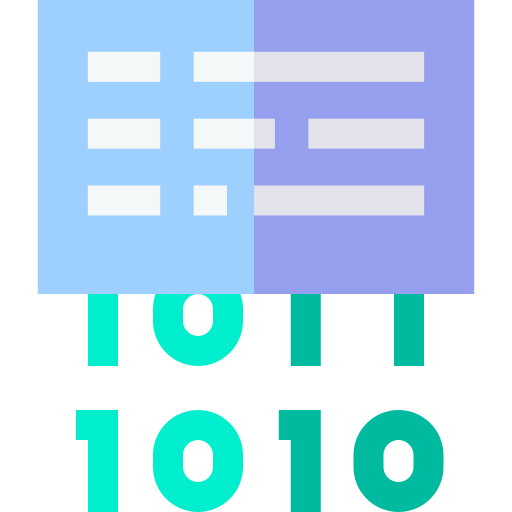 online url encoder
online url encoder
Free online url encoder tool with all web browser support
The encoding and decoding process are instant.
The encoder/decoder is simple and easy to use.
the code produced will be encoded/decoded in a high quality.
None of your data is sent on our servers all the operations are done on the browser itself. This enables us to be 100% safe for our users
Our tool is very easy to understand no professional is needed to work on our tool.
Our tool is completely browser based and no additional software is required to be downloaded on your device.
how to encode our code
- Enter or paste your code in the left box.
- Hit the encode option to generate an upgraded code.
- The code is all shuffled up and ready to be and shared!!
Frequently Asked Questions
What are the features offered by URL encoder from decoderkit.com, while encoding our code online?
URL encoder from decoderkit.com offers versatile features while encoding our code online, the main features include- - Masking our code by the replacing characters with their ASCII values. - Encoding of our code completely. - Safe editing and downloading of the modified code. - Fast modification of the code uploaded, etc. - Copying the modified code for on-spot editing. one of the features of the URL encoder is that it can even edit and indent code that is written in other computer languages, such as C and C++, etc.
How do we edit our code using the URL encoder from decoderkit.com?
There are 7 simple steps using which the user can edit their code online using the URL encoder from formatter kit.com, the steps include- - Upload or type the code in the left box provided to begin the editing. - Use the reset option to begin the encoding process. - Hit the encode option below to begin the code conversion and the resulting code will be published on the right box. - In case If you feel that there is a mistake in the code printed, use the reset option to wipe the whole page clean and begin again. - Use the copy option to copy the resulting code to the clipboard of the computer. - Use the save option to save your modified code in. jss format.
What is URL and why do we encode it?
Uniform Resource Locator or URL. A URL is like that address or phone number you need in order to visit or communicate with your friend. A URL is the most frequently used part of the general concept of a Uniform Resource Identifier or URI, which specifies how resources are located. URLs are designed to accept only certain characters in the standard 128-character ASCII character set. Reserved or unsafe ASCII characters which are not being used for their intended purpose, as well as characters not in this set, have to be encoded. URL encoding serves the purpose of replacing these non-conforming characters with a % symbol followed by two hexadecimal digits that represent the ASCII code of the character.
What is the use of building a valid URL before encoding it?
A URL entered within an address bar in any browser, may contain special characters, these characters may have a different value or meaning depending upon their state of purpose, language of origin, etc. so the browser will have to translate these characters before sending them, and in any way if these characters are not recognizable or seem irrelevant, then there is a chance that system fails while processing that and results in an fatal error, to avoid these kind of errors and many others we need to validate a URL before encoding them.
What is the time taken by the URL encoder from decoderkit.com to format any code uploaded?
Time is the fun fact present here, wherein we upload the code file if it is large enough or we type it, if it is small enough and see the magic unfold. Most of the conversions happen in an instant where the control of the website format the given code. Due to which we can edit multiple code files back-to-back, and all it takes is a device to operate the browser and open the website with a normal or even a slower internet connection. Factors include the size of the code file, and the language it is written in, etc.
What will happen to our progress if we refresh our browser while we are encoding the code using the URL encoder from decoderkit.com?
The URL encoder tool from decoderkit.com is not connected to any server out there, so the code which the user is working on will not be stored anywhere and as a result, it will be erased instantly when the user refreshes the browser on which he is working on. The code modifications which are made to that moment will also be removed after the user exits or closes the tab on which the extension page of the website is open.
Which Languages does URL encoding support?
URL encoding supports a variety of languages, the code can be interpreted in any language such as Python, C, C++, Java and its sub-scripts, and many more. The factor of conversion is same for every language, but the deciding factor lies in the code and the time taken to convert it, if the code is written in C or any old language due to the character number when compared to the code written in any other language such as Python, the encoding will be a bit faster due to the number of characters while converting the characters to their respective coded formats.
How can we prevent encoding errors?
Encoding errors are coding mishaps when ignored can cause a fatal error for the structures.Luckily, there are few easy steps which we can follow to avoid them they include 1. Selecting a good encoding formats- This is the main factor which affects the whole process, we cannot use an irregular algorithm to encode only to forget it the next day, the decoding process will only work if the encoding algorithm matches with the decoding ones. 2. Use proper data formats- There are multiple text-based data formats, who either contain information about their encoding, or at least provide the option to include it, for example - XML files contain (although it’s not mandatory) an XML declaration with the name of the encoding they use, so all XML based formats can do the same. Using formats use the same options they provide for eliminating encoding errors. 3. Use structured interfaces- There are many ways to send data from one system to another, some of these methods offer the sending party the possibility of inclusive information about the data they are sending, such as which encoding it uses. When transferring data via HTTP (e.g. sending data to a webservice), the HTTP Content-Type header can be used to indicate the encoding of the data. the above steps are just a few among many others but they are kind of more important than the others, following them might reduce the risk of performing an encoding error.
Will there be any changes in the code after I download it from the URL encoder tool from decoderkit.com?
Yes, the code on the whole will be converted and will be encoded into some random alphanumeric characters for outsiders, whereas the code on the whole is modified based on the ASCII values, the line space, etc. The code is adjusted mostly by their respective ASCII values. Decoderkit.com won’t change any character in the code while editing or after downloading it.
Can I use the URL encoding feature from decoderkit.com on my LINUX operating system?
Yes, the URL encoding feature from decoderkit.com can be used on any operating system, even LINUX. It is built with the latest code and features which enables the user to use the console online on any operating system such as MAC OS, Windows, and Ubuntu, provided there is a device with a stable internet connection. The magic trick is that it even works on a slower internet connection.
Can I use the URL encoder feature from decoderkit.com on my Android device?
Yes, the URL encoding feature from decoderkit.com can be used on any operating system, even Android. It is built with the latest code and features which enables the user to use the console online on any operating system such as iOS, Linux based devices, provided there is a device with a stable internet connection. The magic trick is that it even works on a slower internet connection.
How do I communicate if I face any issues or if I want to suggest any changes?
We gladly take in any issue or suggestions offered by all the users, please contact us through our social media handles for more information. decoderkit.com is available on all the leading social media platforms such as Gmail, Facebook, Instagram, YouTube, and Linked In, etc.



